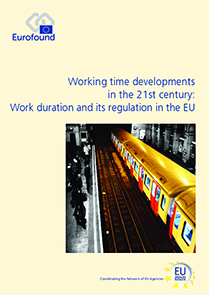Colasanti, Fabio, (2016), “Financial assistance to Greece: Three programmes”, European Policy Centre, 26 February. There are a lot of myths surrounding the bailout money that was given to Greece. Many people still believe that the money never went to the Greek people, but to the Greek and European banks; that the intervention of the euro-area governments and the IMF dealt almost exclusively with the Greek debt; that very little money was used …Read More
What’s Different about Monetary Policy Transmission in Remittance-Dependent Countries?
Barajas, Adolfo, Chami, Ralph, Ebeke, Christian, Oeking, Anne, (2016), “What’s Different about Monetary Policy Transmission in Remittance-Dependent Countries?”, IMF Working Paper No. 16/44, 1 March. Despite welfare and poverty-reducing benefits for recipient households, remittance inflows have been shown to entail macroeconomic challenges; producing Dutch Disease-type effects through their upward (appreciation) pressure on real exchange rates, reducing the quality of institutions, delaying fiscal adjustment, and ultimately having an indeterminate effect on long-run growth. The paper explores …Read More
Closer fiscal integration is unavoidable if the Eurozone is to survive
Marelli, Enrico, Signorelli, Marcello, (2016), “Closer fiscal integration is unavoidable if the Eurozone is to survive”, LSE Blog, 29 February. The fundamental flaws of the European Monetary Union can only be overcome by a drastic change in macroeconomic policies, according to recent research carried out by Enrico Marelli and Marcello Signorelli.They argue that in the long run, radical reforms at the Eurozone level are needed if the monetary union is to survive, although it …Read More
Working time developments in the 21st century: Work duration and its regulation in the EU
Cabrita, Jorge, Boehmer, Simon, Galli da Bino, Camilla, (2016), “Working time developments in the 21st century: Work duration and its regulation in the EU”, Eurofound, Publications Office of the European Union, 1 March. This report examines the main trends and milestones characterising the evolution of the most important aspects of collectively agreed working time in the European Union during the first decade of the 21st century. Drawing primarily on information collected by Eurofound across all …Read More
A comparison of nominal and indexed debt under fiscal constraints
Beetsma, Roel, Westerhout, Ed, (2016), “A comparison of nominal and indexed debt under fiscal constraints“, Centre for Economic Policy Research, February. This paper makes a welfare comparison between the issuance of price-indexed and nominal public debt in the presence of fiscal constraints, viz. a debt constraint, a deficit constraint and a combination of both. Distortionary taxes or public consumption are regulated to avoid the violation of the relevant fiscal constraint(s). Under a debt …Read More
Social Investment and State Capacity
Beblavý, Miroslav, Hájková, Alžbeta, (2016), “Social Investment and State Capacity“, Ceps Publications, 29 February This paper looks at the difference between the levels and nature of social policy expenditure in northern and northwest European countries and the countries of southern, central, and eastern Europe, and examines the relationship between social investment and state capacity in these country groupings. The authors show that southern and eastern countries have a much greater preference for …Read More
Global imbalance risk and exchange rates
Della Corte, Pasquale, Riddiough, Steven, Sarno, Lucio, (2016), “Global imbalance risk and exchange rates“, Voxeu, 29 February Currency markets are an important source of risk premia. Understanding why some currencies offer high returns and whether these returns provide adequate compensation for any additional risk they carry is of critical importance to all international investors. But which currencies offer high returns? Traditionally, the answer was easy – ‘high interest rate currencies’. For decades, an investor …Read More
Getting the most from public R&D spending in times of budgetary austerity
Veugelers, Reinhilde, (2016), “Getting the most from public R&D spending in times of budgetary austerity”, Bruegel, 24 February This working paper reviews the evidence on the impact of public R&D spending. The authors first look at the evidence from micro analysis of the impact of public intervention on private R&D and innovation, with a focus on the latest results from crosscountry micro-research performed within SIMPATIC. To analyse the impact of public R&D on growth, the micro-results on private R&D investment effects …Read More
Why The European Periphery Needs A Post-Euro Strategy
Fazi, Thomas, (2016), “Why The European Periphery Needs A Post-Euro Strategy“, Social Europe, 25 February In recent weeks, Germany has put forward two proposals for the ‘future viability’ of the EMU that, if approved, would radically alter the nature of the currency union. For the worse. The first proposal, already at the centre of high-level intergovernmental discussions, comes from the German Council of Economic Experts, the country’s most influential economic advisory group …Read More
Europe’s refugee surge: Economic and policy implications
Aiyar, Shekhar, Berger, Helge, Detragiache, Enrica, Spilimbergo, Antonio, (2016), “Europe’s refugee surge: Economic and policy implications“, Voxeu, 29 February The unprecedented inflow of refugees to Europe and their uneven distribution calls for coordinated policy actions. This column discusses the economic challenges of the refugee influx. The fiscal and growth impacts largely depend on the speed and success of labour market integration. It is important therefore to implement a range of policies that …Read More





